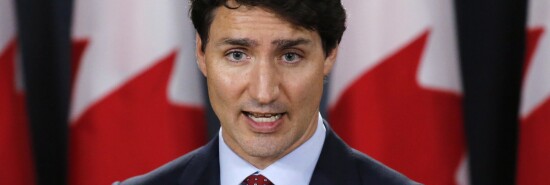
Canada’s push to decriminalize drugs will be a disaster
Adam Zivo
Overdose deaths continue to rise in Vancouver, the epicenter of Canada’s addiction crisis, as barriers to drug use are demolished. After British Columbia’s decriminalization experiment came into effect, the province’s center-right Liberal Party pledged that, should they be elected, they will invest $1.5 billion into Portuguese-inspired rehabilitation-oriented treatment. This would be a significant improvement over British Columbia’s current farce. Earlier this week, the Canadian province of British Columbia decriminalized the possession of small amounts of hard drugs, such as cocaine, heroin, and fentanyl.
Unfortunately, Canadian addiction policies have been profoundly irresponsible. As a result, decriminalization will kill countless people.
Under the new rules, adults in British Columbia who are found with up to 2.5 grams of hard drugs will neither be arrested nor have their drugs confiscated. Instead, they will be given information about addiction treatment programs. Drug traffickers and sellers will continue to face punishment, however. By decriminalizing drug possession, British Columbia hopes to “destigmatize” addiction so that individuals will feel more comfortable seeking treatment. Provincial authorities hope that this experiment, which will last three years, will be expanded across Canada.
There are some countries where decriminalization has worked. Portugal, for example, decriminalized drug possession in 2001 and saw significant decreases in addiction and HIV infections. However, the Portuguese model invests heavily in rehabilitation. Individuals caught with small amounts of drugs are not criminally charged but are still summoned to a commission (composed of a psychiatrist, social worker, and an attorney) where they can be punished with fines, loss of access to welfare, or bans from visiting certain places or people. Drug users are heavily pressured, but not forced, to seek treatment at rehabilitation facilities, which are well-funded and widely available.
In contrast, rehabilitation is not only underfunded in Canada, it is often actively scorned. Over the past month, I interviewed more than 10 addiction physicians across Canada who expressed deep concern about the government’s drug policies. They said that, though policymakers publicly claim to champion rehabilitation, realities are different on the ground. Recovery-based treatments are discouraged because they are believed to be “stigmatizing” and an infringement upon an individual’s “human right” to seek pleasure in drugs regardless of the harm to communities. Troublingly, when Dr. Julian Somers, a leading addiction expert at Simon Fraser University, criticized British Columbia’s drug policies and advocated recovery-oriented housing, the province responded by ordering the destruction of his main database and freezing him out of future consultations.
According to numerous addiction physicians, Canadian drug policies seem to be controlled by a clique of ideologically-driven researchers who simply do not believe that rehabilitation is possible or even desirable. These researchers have spent over a decade collaborating with Vancouver-based drug activists to push for hyper-libertarian policies that minimize exposure to recovery-based treatments.
CLICK HERE TO READ MORE FROM THE WASHINGTON EXAMINER
Adam Zivo is a Canadian columnist and policy analyst who relocated to Ukraine earlier this year to report on the Russia-Ukraine war. He is writing a book on how the war is experienced by average Ukrainians.
